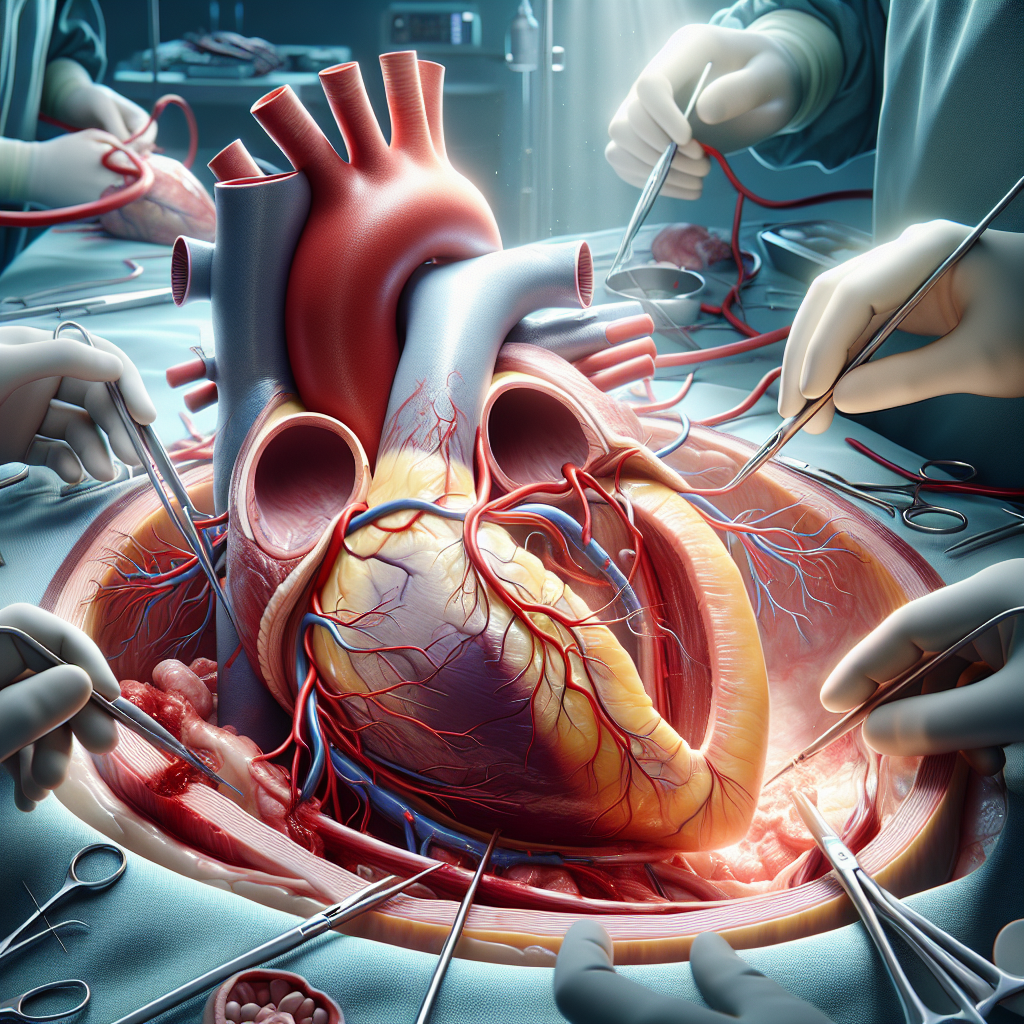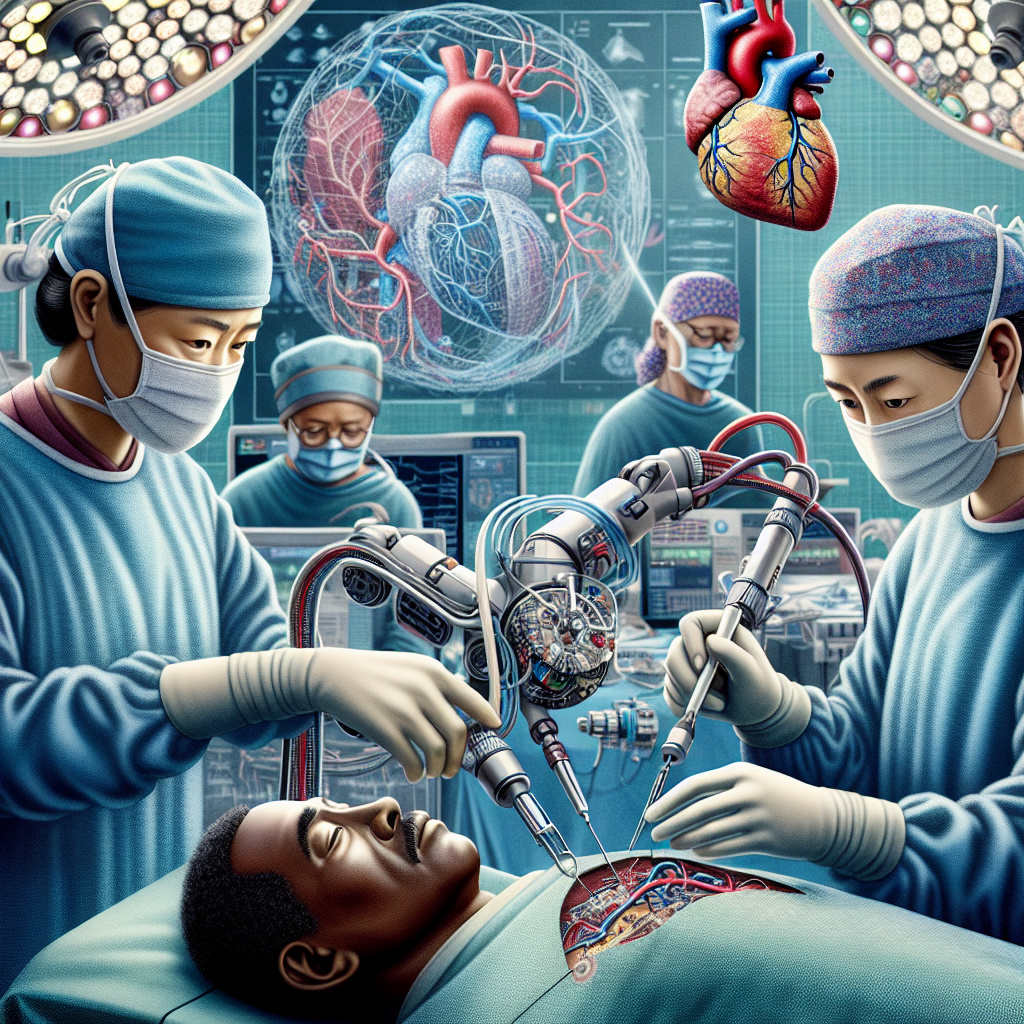Heart bypass surgery, or Coronary Artery Bypass Grafting (CABG), is a highly effective procedure to treat blocked coronary arteries and restore normal blood flow to the heart. India offers some of the most advanced and affordable cardiac care globally, with procedures performed at top hospitals like Medanta – The Medicity and Asian Heart Institute, Mumbai. Renowned cardiac surgeons such as Dr. Naresh Trehan and Dr. Ramakanta Panda have contributed to India’s reputation for excellence in complex bypass surgeries. The average bypass surgery cost in India ranges from ₹1.5 to ₹3.5 lakhs, making it one of the most cost-effective destinations for high-quality heart treatment.
Medical disclaimer: This content is for general awareness and does not replace a doctor’s consultation. For diagnosis or treatment decisions, consult a qualified specialist.
What Is Heart Bypass Surgery (CABG)?

Heart bypass surgery, also known as Coronary Artery Bypass Grafting (CABG), is a vital procedure to treat coronary artery disease (CAD). It’s performed when arteries supplying blood to the heart are narrowed or blocked due to plaque buildup, reducing oxygen supply to the heart muscle.
The surgeon creates a new route for blood flow using a healthy vessel taken from the leg, chest, or arm. This bypasses the blocked artery and restores proper circulation to the heart.
It’s usually recommended in cases such as:
- Multiple or complex coronary blockages
- Severe narrowing of the left main coronary artery
- Ineffective results from stents or medications
- High risk of heart attack or unstable angina
CABG is a highly successful surgery, especially when performed in accredited cardiac hospitals by experienced surgical teams.
Why Is Bypass Surgery Needed? Causes & Symptoms Explained
Bypass surgery is required when coronary arteries are blocked due to atherosclerosis, a condition caused by plaque buildup that restricts blood flow to the heart. This raises the risk of heart failure or heart attacks.
Learn more about the causes of coronary artery disease.
Common causes include:
- High cholesterol and fat-rich diets
- High blood pressure weakening artery walls
- Smoking, diabetes, or lack of physical activity
- Family history of heart disease
Typical symptoms indicating poor blood flow:
- Chest pain or discomfort (angina)
- Breathlessness on exertion
- Fatigue, irregular heartbeat, or swelling in legs
If these symptoms persist and are not manageable with lifestyle changes or medication, bypass surgery is often the best option to prevent further cardiac events.
Types of Heart Bypass Surgeries Performed in India

In India, several advanced techniques are used for heart bypass surgery, depending on the patient's condition, age, and the complexity of arterial blockages. Choosing the right type of surgery improves outcomes and recovery time.
The most common types of bypass surgeries include:
-
Traditional CABG (On-Pump Bypass): The heart is temporarily stopped, and a heart-lung machine maintains blood flow. It's widely used for complex multi-vessel disease.
-
Off-Pump CABG (Beating Heart Surgery): Performed without stopping the heart, reducing complications and recovery time. Suitable for high-risk patients.
-
Minimally Invasive CABG: A smaller incision between the ribs is used instead of opening the chest. This method offers quicker recovery and less post-op pain.
-
Robotic-Assisted CABG:
Surgeons use robotic instruments for high precision through tiny incisions. It’s available at select super-specialty hospitals in India.
Indian hospitals offer these procedures using global protocols and technology, making them accessible and affordable for both domestic and international patients.
Heart Bypass Surgery vs Angioplasty: Key Differences
Both bypass surgery and angioplasty are effective treatments for coronary artery disease, but they differ in approach, suitability, and long-term outcomes. Choosing between them depends on the number of blockages, their severity, and the patient's overall health.
Here’s a quick comparison:
| Aspect |
Bypass Surgery (CABG) |
Angioplasty (PTCA) |
| Procedure Type |
Open-heart surgery with grafts |
Minimally invasive with stents |
| Best For |
Multiple or complex blockages |
Single or simple blockages |
| Recovery Time |
4–6 weeks |
3–7 days |
| Longevity |
Lasts 10–15+ years |
Stents may re-narrow in 1–5 years |
| Risk Level |
Higher, due to open surgery |
Lower, less invasive |
While angioplasty is quicker and less invasive, bypass surgery is often preferred for long-term relief in patients with triple vessel disease or left main artery blockage. Your cardiologist will suggest the most suitable option based on clinical tests and angiography results.
Read more about the risks and complications of angioplasty.
Step-by-Step Heart Bypass Surgery Procedure
Understanding what happens during heart bypass surgery can help patients feel more prepared and confident. The procedure is carefully planned and performed by an experienced cardiac team under strict medical protocols.
Here's a simplified step-by-step overview of the CABG process:
- Pre-surgery Evaluation: Includes blood tests, ECG, chest X-ray, and coronary angiography to assess blockage severity and plan the grafts.
- Anesthesia: General anesthesia is administered to ensure the patient is fully unconscious and pain-free during the procedure.
- Incision & Graft Harvesting: A chest incision is made, and a healthy blood vessel is taken from the leg, chest, or arm to be used as a graft.
- Bypassing the Blocked Artery: The graft is attached above and below the blocked coronary artery to restore blood flow.
- Restarting the Heart: If a heart-lung machine is used, the heart is restarted and circulation is restored to normal.
- Closing the Chest: The breastbone is wired back together, and the incision is closed using sutures or staples.
- Recovery in ICU: The patient is moved to a cardiac ICU for 1–2 days, followed by further recovery in the hospital for about 5–7 days.
The full recovery may take several weeks, during which lifestyle changes and cardiac rehabilitation are strongly recommended. Learn about what to expect during a cardiology consultation before surgery.
What Is the Cost of Heart Bypass Surgery in India?
India is globally recognized for offering high-quality heart bypass surgeries at a fraction of the cost compared to countries like the US, UK, or UAE. The cost typically varies based on the hospital, surgeon’s experience, room type, and any pre-existing health conditions.
Average cost range in India:
- For Indian patients: ₹1.5 – ₹3.5 lakhs
- For international patients: $3,000 – $6,000 USD
Factors that influence the final cost include:
- Choice of hospital (NABH/JCI accreditation, city)
- Surgical technique (traditional vs robotic CABG)
- Number of grafts required
- Pre- and post-surgery diagnostics and ICU stay
- Medical insurance or package inclusions
Despite being cost-effective, India’s cardiac care centers maintain high success rates and advanced technology. Many hospitals also offer all-inclusive treatment packages to simplify medical travel for international patients.
Explore a detailed breakdown of heart bypass surgery cost in India by visiting our in-depth guide heart bypass surgery cost in India.
India vs Other Countries: Heart Bypass Surgery Cost Comparison
One of the key reasons patients from across the world choose India for heart bypass surgery is the affordable cost without compromising on quality. Indian hospitals offer globally accredited facilities, experienced cardiac surgeons, and modern surgical techniques—at a significantly lower price.
Approximate cost comparison for CABG (single bypass):
| Country |
Average Cost (USD) |
| India |
$3,000 – $6,000 |
| United States |
$70,000 – $120,000 |
| United Kingdom |
$50,000 – $90,000 |
| UAE |
$40,000 – $60,000 |
| Thailand |
$15,000 – $20,000 |
In India, the cost typically includes hospital stay, surgical fees, ICU charges, anesthesia, and post-op care—making it a complete and value-driven medical destination. Many hospitals also offer cashless treatment and assistance with travel, visa, and accommodation.
Top Hospitals in India for Heart Bypass Surgery
India offers some of the most affordable and advanced cardiac care globally. While top hospitals are spread across metro cities, Mumbai and Delhi stand out for their concentration of world-class cardiac institutes and renowned heart surgeons.
Best Heart Bypass Surgery Hospitals in Mumbai

Mumbai is a leading destination for complex cardiac procedures, including minimally invasive and robotic CABG. It is home to several internationally accredited hospitals and surgeons with high success rates.
- Asian Heart Institute – Specializes in high-risk bypass cases with international standards.
- Fortis Hospital, Mulund – Known for robotic-assisted and beating-heart bypass surgeries.
- Global Hospital, Parel – Offers hybrid cardiac procedures and dedicated cardiac rehab units.
Best Heart Bypass Surgery Hospitals in Delhi
Delhi is known for its specialized cardiac hospitals, equipped with cutting-edge technology and top heart specialists. These centers offer both affordable and premium treatment options for domestic and international patients.
- Fortis Escorts Heart Institute – A trusted name in CABG and valve surgeries with 24/7 cardiac emergency care.
- Apollo Hospital, Sarita Vihar – Offers minimally invasive and robotic heart surgeries with a focus on patient-centered care.
- BLK-Max Super Speciality Hospital – Equipped with advanced cath labs and hybrid ORs for complex cardiac interventions.
Leading Cardiac Surgeons for Bypass Surgery in India

India is home to world-renowned cardiac surgeons who perform thousands of bypass surgeries each year with excellent outcomes. Below are some of the most reputed heart specialists from Mumbai and Delhi.
Top Cardiac Surgeons in Mumbai
Learn more about the best cardiac surgeons in Mumbai in our detailed blog.
-
Dr. Ramakanta Panda – Vice Chairman & Chief Consultant Cardiovascular Thoracic Surgery, Asian Heart Institute, Mumbai. Famous for handling high-risk and redo bypass cases, with over 20,000 surgeries to his name.
-
Dr. Nandkishore Kapadia – Director, Cardiothoracic Surgery at Nanavati Max Super Specialty Hospital. Known for heart-lung transplants and use of ECMO and LVAD.
-
Dr. Manish Hinduja – Consultant at Fortis Hospital, Mulund. Specializes in minimally invasive and total arterial bypass surgeries.
Top Cardiac Surgeons in Delhi
Explore the full list of the best cardiac surgeons in Delhi for bypass and advanced heart surgery.
-
Dr. Naresh Trehan – Chairman, Medanta – The Medicity. A veteran heart surgeon with 48,000+ surgeries, known for pioneering cardiac care in India.
-
Dr. Ashok Seth – Chairman, Fortis Escorts Heart Institute. Globally respected for his contribution to interventional and surgical cardiology.
-
Dr. Ajay Kaul – Head of Cardiac Sciences, BLK-Max Hospital. Expert in CABG, valve repair, and aortic surgery with over 15,000 surgeries performed.
For a broader view, explore our list of the best cardiac surgeons in India across top hospitals nationwide.
Post-Surgery Recovery & Long-Term Lifestyle Guidelines
Recovery after heart bypass surgery typically takes several weeks and involves close monitoring, medication, lifestyle adjustments, and in many cases, cardiac rehabilitation. Following your surgeon’s advice during this period is crucial for a full recovery and long-term heart health.
Typical recovery timeline:
- Hospital stay: 5 to 7 days including 1–2 days in ICU
- Return to normal activities: 4 to 6 weeks (depending on individual condition)
- Complete recovery: Up to 3 months with regular follow-ups
Key post-operative care guidelines:
- Take prescribed medications consistently (e.g., blood thinners, beta blockers)
- Join a cardiac rehab program for guided exercise and diet planning
- Follow a low-fat, heart-healthy diet rich in fruits, vegetables, and whole grains
- Quit smoking and limit alcohol consumption
- Manage stress through yoga, meditation, or counseling
Long-term success of bypass surgery depends on maintaining a healthy lifestyle and regularly consulting with your cardiologist to monitor your heart condition.
Success Rate & Outcomes of Bypass Surgery in India
India has earned global recognition for its high success rates in heart bypass surgery, thanks to advanced medical infrastructure, skilled cardiac surgeons, and adherence to international treatment protocols.
Key outcome statistics:
- The average success rate of elective CABG in India is above 98%
- Mortality rate remains low, especially in high-volume, accredited hospitals
- Most patients return to daily activities within 4–6 weeks post-surgery
Several Indian hospitals use enhanced recovery protocols (ERAS) and robotic techniques to improve surgical precision and minimize complications. Long-term outcomes are particularly positive in patients who follow post-operative care plans and cardiac rehabilitation.
India's reputation for safe and effective cardiac care makes it a trusted destination for both domestic and international patients seeking coronary bypass surgery.
Heart Bypass Surgery for International Patients
India is a top destination for medical tourism, especially for heart bypass surgery, offering high-quality care at affordable prices. International patients from the Middle East, Africa, Europe, and Southeast Asia travel to India for access to advanced cardiac treatments, world-class hospitals, and experienced heart surgeons.
Support services for international patients include:
- End-to-end treatment planning with estimated costs before travel
- Visa assistance and invitation letters from hospitals
- Airport pickup and local accommodation arrangements
- Multilingual coordinators and interpreters
- Follow-up support via teleconsultation after returning home
Many hospitals in Mumbai and Delhi have dedicated international patient departments to ensure a smooth, hassle-free experience from arrival to discharge.
If you are seeking quality heart bypass surgery at a globally competitive cost, India offers a compelling choice with trusted care and personalized attention.
Insurance & Financing Options for Bypass Surgery in India
Heart bypass surgery can be a significant expense, but many hospitals in India provide flexible payment options and accept both national and international insurance coverage. For Indian citizens, most major health insurance providers offer coverage for CABG under critical illness or surgical plans.
Available financial options include:
- Cashless Treatment: Available through insurance TPAs at network hospitals
- Reimbursement Claims: For policies not covered under direct cashless agreements
- Government Health Schemes: Like Ayushman Bharat and state-run Yojanas for eligible patients
- EMI & Financing Plans: Offered by select hospitals and third-party medical loan providers
- International Insurance: Accepted by JCI-accredited hospitals from global insurers
Before undergoing surgery, it’s recommended to speak with your hospital’s insurance helpdesk to understand claim procedures, pre-authorization requirements, and estimated out-of-pocket costs.
Frequently Asked Questions (FAQs) About Bypass Surgery
Is heart bypass surgery safe?
Yes, heart bypass surgery is considered safe and has a high success rate, especially when performed in accredited hospitals by experienced cardiac surgeons. Most patients recover fully and lead normal lives post-surgery.
How long does the surgery take?
The procedure typically lasts between 3 to 6 hours, depending on the number of bypasses needed and the patient’s overall health condition.
What is the recovery time after heart bypass surgery?
Most patients stay in the hospital for 5 to 7 days, followed by 4 to 6 weeks of home recovery. Complete recovery may take up to 3 months, including cardiac rehab and lifestyle changes.
Can international patients undergo CABG in India easily?
Yes. Indian hospitals offer medical visas, airport pickup, translators, and all-inclusive packages for international patients seeking bypass surgery.
Is bypass surgery better than angioplasty?
Bypass surgery is often recommended for multiple or complex blockages, while angioplasty is ideal for single, less severe artery narrowing. Your cardiologist will suggest the best option based on your condition.
Does insurance cover heart bypass surgery in India?
Most Indian health insurance plans cover CABG. Many hospitals also support cashless treatment and accept international insurance. Financing or EMI options may also be available.
Get a Personalized Cost Estimate for Heart Bypass Surgery
Treatment costs can vary based on your medical condition, hospital choice, and preferred city. Get in touch with our care team to receive a no-obligation quote tailored to your requirements.
Contact us today to connect with leading heart surgeons and hospitals in India.
Explore the Best Heart Care Resources in India
Find some of the top cardiologist, surgeons and the best heart hospitals in India
Best Heart Hospitals in India
Choosing the right hospital is crucial for successful heart treatments. If you want to explore trusted options, check the list of Best Heart Hospitals in India offering world-class facilities, advanced cardiac care units, and experienced teams for both simple and complex procedures.
Best Cardiologists in India
Finding the right cardiologist can make a huge difference in early diagnosis and long-term heart health. If you are looking for the Best Cardiologists in India, see this curated list of experts who specialize in preventive care, interventional cardiology, and complex heart disease management. Check the full list Best Cardiologists in India.
Best Cardiac Surgeons in India
If you are planning for heart surgery and need top-level expertise, we recommend exploring the Best Cardiac Surgeons in India. These surgeons have a proven record in performing bypass surgeries, valve replacements, and minimally invasive heart operations with excellent outcomes.
Get more indepth information on Cardiology treatments and their costs.
Conclusion
Your cardiology health deserve the best care. Explore the links above to learn more about the top cardiac hospitals and cardiac surgeons in India.
Learn what's safe after heart bypass surgery: alcohol, smoking, and sex guidelines for recovery. Discover lifestyle changes to improve heart health and avoid complications. Expert tips for a smoother recovery and long-term wellness. Click to read more! Alcohol, Smoking & Sex After Heart Bypass: What’s Safe and What’s Not?
Learn how to sleep comfortably after heart bypass surgery. Discover expert tips, recommended sleep aids, and ways to manage discomfort like night sweats. Improve your recovery with proper rest and avoid complications. Click to explore essential post-surgery sleeping advice. Heart Bypass Recovery: How to Sleep Comfortably Post Surgery
Discover why India is the top choice for affordable, high-quality heart bypass surgery. Learn about costs, language support, insurance options, and travel tips for international patients. Plan your medical journey with confidence and access world-class cardiac care. Complete Guide for Foreigners Seeking Heart Bypass in India